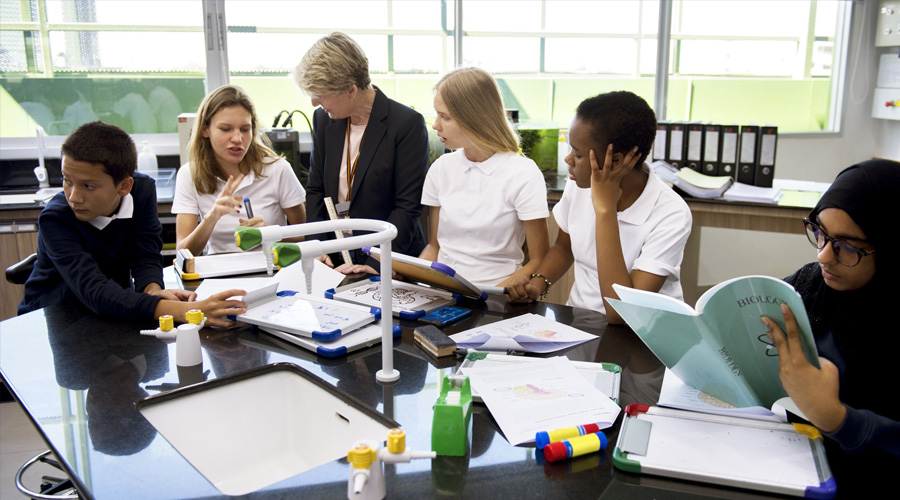Project-based learning is more than just “doing a project,” in the way you might remember!
Project-based learning (PBL) or project-based instruction is an instructional approach designed to give students and teachers the opportunity to develop knowledge and skills through engaging projects set around challenges and problems they may face in the real world. Teachers who are taught to critically think together learn how to use collaboration to support children’s individual abilities and needs. Promoting this type of thinking can be embedded into teacher preparation programs and then continue into the workplace as professional development. More often, however, skill-building experiences for preschool teachers are designed as one-time learning experiences, such as individual assignments or workshops that can feel isolating.
- School Mapping With AI: Benefits of Using School Mapping System
- Top Ten Best Mental Health Resources for Teachers in 2022
- Looking for the Best E-Learning Tool? Try Telegram Messenger
Project-based learning is more than just “doing a project,” in the way you might remember from your own school days. As the Buck Institute for Education (BIE) explains, with PBL, students “investigate and respond to an authentic, engaging, and complex problem or challenge” with deep and sustained attention. Teachers are likely to engage in professional learning experiences that are supported by leadership, focused, inquiry-driven, collaborative, and founded in trust. Experiences that build teachers’ connection around a shared aim can also empower continued learning and practice. Including a spotlight challenge—where preschool teachers can conduct research, formulate plans of action, and share them with their colleagues can be an impactful way to structure PBL for professional learning.
- Collaboration: Professional relationships formed during collaboration is a huge part of Project-based learning (PBL). Collaboration is important in the workplace because it leads to more communication between colleagues and increased productivity. When people work together toward a common aim, they can each use their experiences and skills to contribute to its success. Not only teachers but students also form relationships with community members when working on projects, gaining insight for careers and beyond.
- Problem Solving: It is an essential skill for teachers because it is crucial to have effective problem solving skill when you are surrounded by many students. Those with good problem-solving skills are a valuable and trusted asset in any team – these are the people who think of new ideas, better ways of doing things, make it easier for people to understand things or help save customers time and money.
- Creativity: With the ability to think creatively and outside of the box, teachers are more likely to come up with unique and innovative solutions to obstacles they encounter. This eagerness to solve problems can lead to new ways to accomplish tasks and adds to a more efficiently run classroom.
- Easily assess educational outcomes: You can easily set up different types of assessments, commonly moderated assessments which allow for a feedback loop, along with question-and-answer options such as multiple choice and checkboxes. You can easily track participant engagement, progress and deliverables, pinpoint any issues with individual students or teams, and support them throughout their PBL experience.
- Self-Confidence: This might seem surprising, but it actually makes sense. A teacher who lacks confidence is less likely to push students, try new methods, or tackle difficulties. Teacher efficacy also plays a role in teacher retention, helping to keep educators motivated and stay in profession. Therefore, PBL help teachers find their voice and learn to take pride in their work, boosting their agency and purpose.
- Critical Thinking: Strong teachers think critically. They practice the thinking art of analyzing and evaluating as they consider both day-to-day activities and long-term teaching and learning goals. They evaluate what they have, determine what they will need, and decide how and when to assess student progress.
- Perseverance: Teachers who promote perseverance among their students can foster engagement and produce excellent results in the classroom. When working on a project, teachers can help students learn to manage obstacles more effectively, often learning from failure and making adjustments until they’re satisfied with their work.
- Reflexive Thinking: Invitations to consider different scenarios encourage teachers to recall their experiences and apply knowledge, while whole group discussions—through skilled facilitation—can improve their reflexive thinking on proposed solutions.
- Curiosity: It makes your mind active instead of passive Curious people always ask questions and search for answers. Their minds are always active. Since the mind is like a muscle which becomes stronger through continual exercise, the mental exercise caused by curiosity makes your mind stronger and stronger.
- Empowerment: An empowered teacher has enough resources and freedom to provide every student with the education that they deserve. The importance of being empowered can also be illustrated by its role in increasing teacher motivation, improving problem-solving skills and making students empowered.



